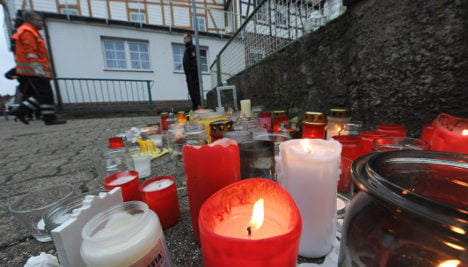The bodies of the 13-year-old boy and 14-year-old girl were found partially undressed and lying close to one another in a wooded area on the outskirts of town, said criminal director Andreas Borchert on Monday at a press conference in the nearby city of Northeim.
A tip from the public indicated the children were spoken to by someone in a dark car.
For “strategic reasons relating to the investigation,” police refused to say how the children had died. The head of the murder squad carrying out the investigation, Hartmut Reinecke, declined to give details on any injuries the children had suffered.
Click here for a gallery of the investigation in Bodenfelde.
Post-mortem results had not yet been provided, said state prosecutor Hans Hugo Heimgärtner. The two youngsters had had no close personal connection, though they went to the same school.
“They definitely were known to each other from there,” Heimgärtner said.
It was rare for sexual criminals to target both both girls and boys, Borchert said, adding that there was a group of perpetrators who targeted small children and to whom the gender did not matter.
The police had been searching intensively for the girl, Nina B., since Tuesday, when she was reported missing by her mother, Borchert said. Fellow students had seen and even spoken to her during the past week but she had hidden from police.
The boy, Tobias L., had accompanied a friend to the train station in Bodenfelde on Saturday night around 8 pm but had not been seen after that. Borchert confirmed that the boy’s mother had found his body on Sunday.
About 500 students from the Bodenfelde school bid farewell to the dead teenagers at a service on Monday morning. Mayor Hartmut Koch said the town was deeply shocked by the crime.
DPA/The Local



 Please whitelist us to continue reading.
Please whitelist us to continue reading.
Member comments